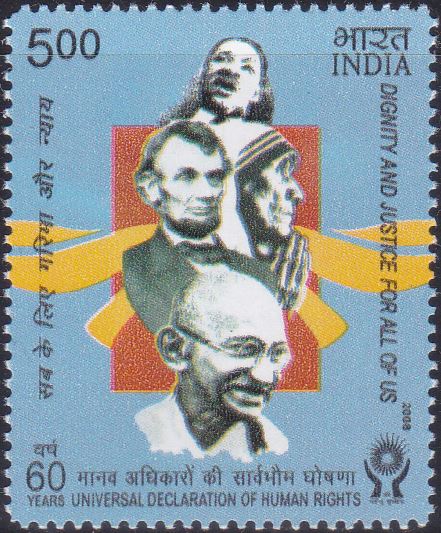
India on UDHR 2008
A commemorative postage stamp on the 60 years of the Universal Declaration of Human Rights (UDHR) : Dignity and Justice for All of Us :
 Issued by India
Issued by India
Issued on Dec 10, 2008
Issued for : The Department of Posts is happy to issue a commemorative postage stamp on Universal Declaration of Human Rights.
Credits :
Stamp & FDC : Sankha Samanta
Cancellation : Alka Sharma
Type : Stamp, Mint Condition
Colour : Multi colour
Denomination : 500 Paise
Stamps Printed : 1.0 Million
Printing Process : Photogravure
Printer : India Security Press, Nasik
About :
- On December 10, 1948, the General Assembly of the United Nations adopted and proclaimed the Universal Declaration of Human Rights. The Declaration is recognition of the fact that the inherent dignity and the equal and inalienable rights of all members of the human family are the foundation of freedom, justice and peace in the world and reaffirmation of faith, of the peoples of United Nations in the Fundamental human rights.
- The Universal Declaration of Human Rights, states in clear and simple terms the rights which belong equally to every person. It inter alia envisages that all human beings are born free and equal in dignity and rights and are entitled to enjoy all rights and freedoms set forth in the declaration without distinction of any kind. Everyone has right to life, liberty and security of person, equality before law and equal protection of law and freedom of thought, conscience, religion, opinion and expression. The declaration enunciates various civil, economic, social and cultural rights.
- The General Assembly of the United Nations adopted and proclaimed the Universal Declaration of Human Rights. Following this historic act the Assembly called upon all Member countries to publicize the text of the Declaration and to cause it to be disseminated, displayed, read and expounded principally in schools and other educational institutions, without distinction based on the political status of countries or territories.
- Recognition of the inherent dignity and of the equal and inalienable rights of all members of the human family is the foundation of freedom, justice and peace in the world. Disregard and contempt for human rights have resulted in barbarous acts which have outraged the conscience of mankind, and the advent of a world in which human beings shall enjoy freedom of speech and belief and freedom from fear and want has been proclaimed as the highest aspiration of the common people.
- It is essential, if man is not to be compelled to have recourse, as a last resort, to rebellion against tyranny and oppression, that human rights should be protected by the rule of law. It is essential to promote the development of friendly relations between nations. The people of the United Nations have in the Charter reaffirmed their faith in fundamental human rights, in the dignity and worth of the human person and in the equal rights of men and women and have determined to promote social progress and better standards of life in larger freedom. Member States have pledged themselves to achieve, in cooperation with the United Nations, the promotion of universal respect for and observance of human rights and fundamental freedoms. A common understanding of these right and freedoms is of the greatest important for the full realization of this pledge.
- The theme for 2008. “Dignity and justice for all of us” reinforces the vision of the Universal Declaration of Human Rights as a commitment to universal dignity and justice. It is not a luxury or a wish-list. The Universal Declaration of Human Rights and its core values, inherent human dignity, non-discrimination, equality, fairness and universality, apply to everyone, everywhere and always. The declaration is universal, enduring and vibrant, and it concerns us all.
- The National Human Rights Commission of India is a fully compliant internationally accepted Paris Principles for independent and autonomous National Human Rights Institution. The National Human Rights Commission of India was constituted under the Protection of Human Rights Act 1993 for better protection and promotion of human rights. Its functions include enquiring suo motu or on petitions into complaints of violations of human rights, review safeguard provided under the Constitution or any law and study laws, treaties and other international instruments of human rights and make recommendations for their effective implementations, undertake and promote research on human rights issues. Spread human rights awareness and encourage efforts of non-governmental organizations working in the field of human rights. During last 15 years, the Commission has endeavoured to promote a culture of human rights. It has earned the trust and confidence of the people in substantial measure.
- Text : Based on material given by the proponent.



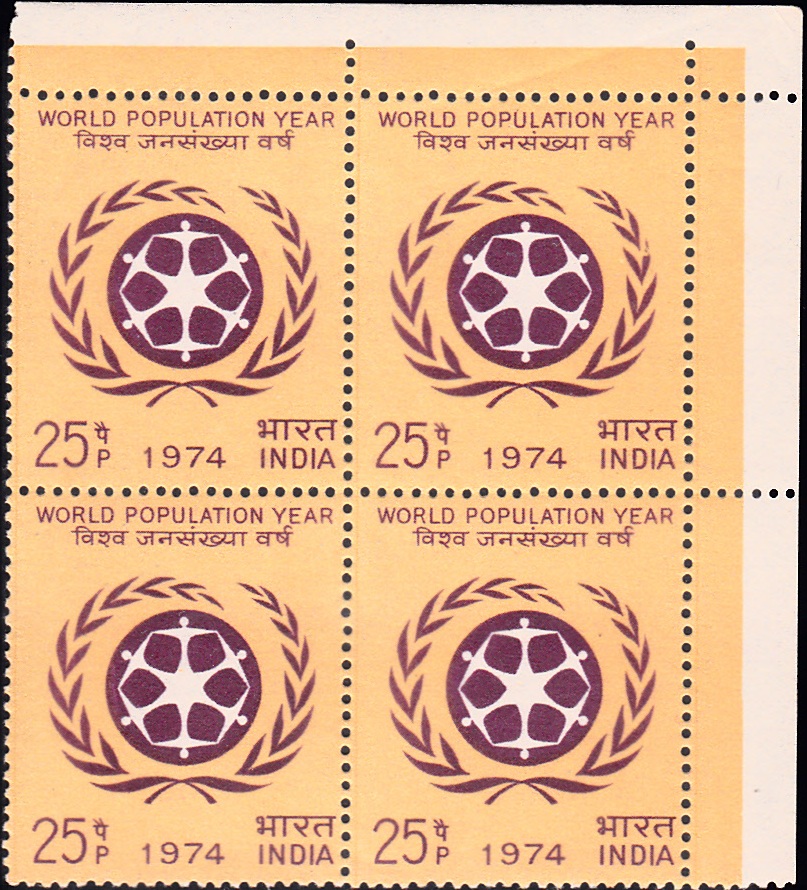
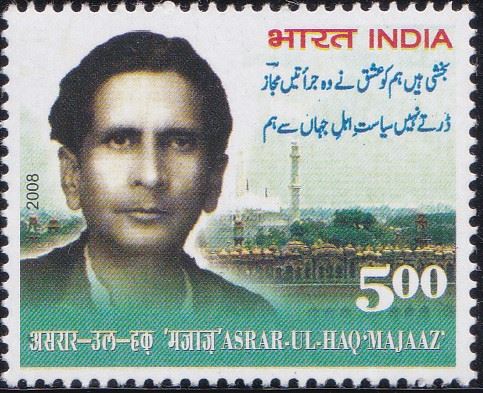
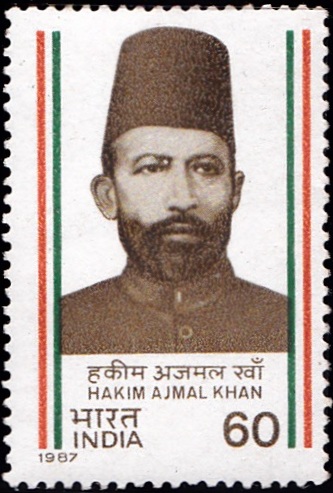
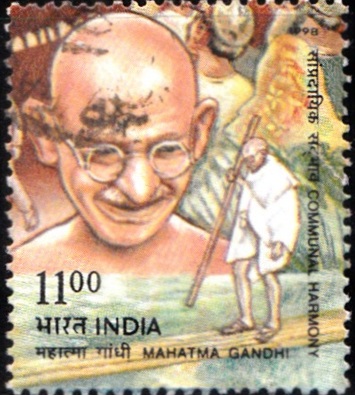
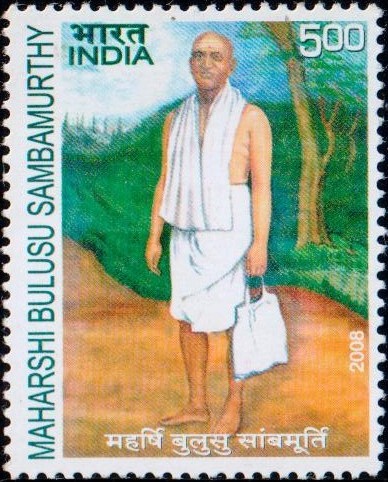
[…] Design : Healthy family with the sun and the mark of the 30th Anniversary of the “Declaration of Human Rights“. […]
[…] Year for Human Rights‘, as it marks the twentieth anniversary of the proclamation of the Universal Declaration of Human Rights. The Universal Declaration of Human Rights, unanimously approved by the General Assembly on 10th […]